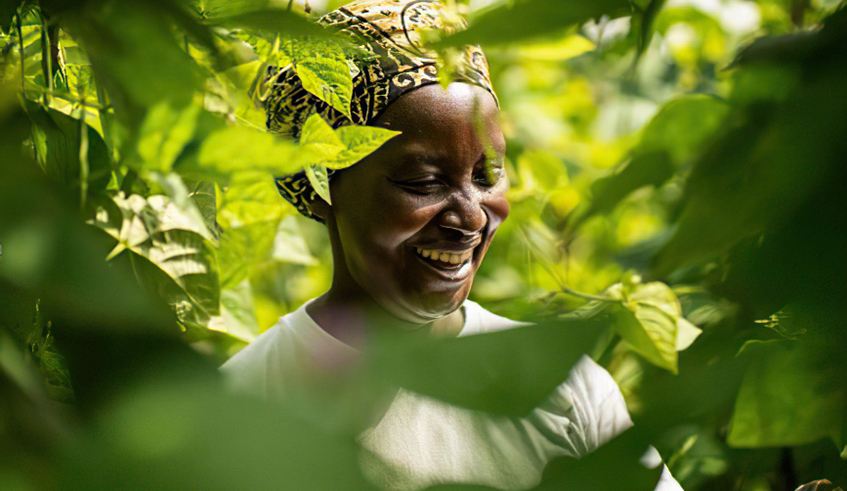

As Rwanda and its partners celebrate the World Food Day on October 29, 2021, the United Nations World Food Programme (WFP) commits continued support towards better production, nutrition, and a better environment through sustainable food systems.
This is well aligned with this year’s World Food Day’s theme "Our actions are our future- better production, better nutrition, a better environment and a better life”.
Holistic programmes that support smallholder farmers to provide locally grown food for school meals are part of the WFP’s efforts to leverage the Government of Rwanda’s vision of achieving a healthy and sustainable food system by 2030.
Smallholder farmers are key to local production
There was a time when Immaculée Mukarusanga, a smallholder farmer from Nyaruguru district, relied on farming just to feed her two daughters. These days, she grows enough beans, maize and potatoes to sell to a range of buyers.
Her professional transformation was made possible through the Farm to Market Alliance – comprising six global agri-focused organizations including the United Nations World Food Programme (WFP) – which provides training to smallholder farmers to improve crop quality and volume, as well as reduce losses after harvest.
The initiative also links cooperatives to formal buyers to sell their quality harvests at competitive prices. Immaculée is one of over 100,000 farmers currently supported by the initiative in Rwanda.


Children like 9-year-old Belyse from Nyamagabe district are already experiencing the benefits of school feeding. "Having a meal at school helps my friends and I concentrate in class,” said Belyse. Photo: ©WFP/Arete/Fredrik Lerneryd.
Immaculée primarily grows iron-rich, single-variety beans, selling them through the farmers’ cooperative that she has been a part of since 2015. WFP is one of several buyers that purchases from the cooperative, and supplies beans directly to its school feeding programme.
Immaculée also has crop insurance to protect her from climate-related threats such as droughts or floods. She secured this through the Government’s National Agricultural Insurance Scheme, with support from the alliance.
Working towards sustainable food systems by 2030
In September 2021, UN Secretary-General António Guterres convened the global Food Systems Summit to launch bold actions for healthier and more sustainable food systems to help achieve the UN Sustainable Development Goals (SDGs) by 2030.
A "food system” includes all the activities and policies involved in producing, processing, transporting and consuming food. Too many of the world’s food systems are fragile, as millions more people around the world are now facing hunger as a result of the Covid-19 pandemic.
Through the Food Systems Summit, the Government of Rwanda led calls for countries to make bold commitments to transform their food systems.
School feeding is a food systems game changer
Leading up to the Food Systems Summit, Rwanda’s Ministry of Education announced its commitment to the School Meals Coalition – a global initiative that seeks to ensure that every child receives a healthy meal each school day by 2030.
School feeding is a game changer for children who benefit from being healthier and educated, for farmers who have access to more stable markets, for women who can establish small businesses that support school meal provision, and for the community as a whole. According to a 2017 study, every US$1 invested in school feeding in Rwanda brings an economic return of US$4.80 from improved productivity, health and nutrition, and education.
In July 2020, the Government of Rwanda committed to scaling up school feeding from approximately 600,000 students to more than 3.3 million pre-, primary and secondary students across Rwanda.
It is estimated that this scale up will inject US$25 million into the economy through local food purchases.
WFP, which directly supports school feeding in some of the most vulnerable areas across the country, is providing technical support to the Government to support this national scale-up.


